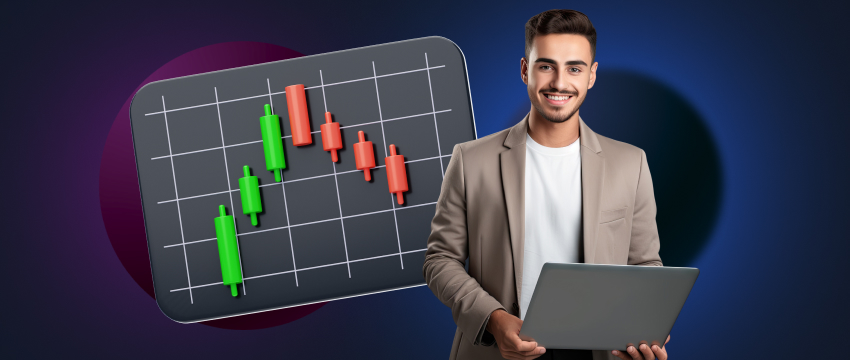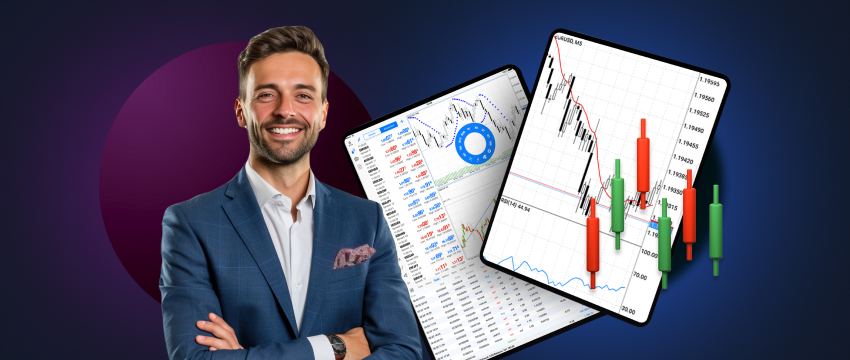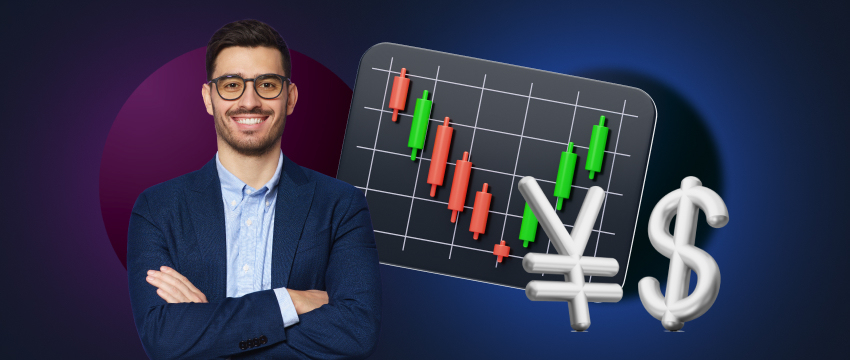There are so many ways to invest in the forex market. You could try event-driven trading or event news trading, for example. News trading is a strategy where traders speculate on price movements caused by economic, political, or other events.
These events can be anything from central bank announcements to inflation increases. And that’s not all! Employment rates, investor sentiment, geopolitical tensions, war, and even natural disasters can all have an impact.
One needs to recall the impact of the Covid-19 pandemic, the war in Ukraine or, currently, Trump’s tariffs. As an event investor, you monitor news to predict its market impact and use that insight to make smart transactions.

Event traders: How do they start?
So, how do they do it? They’re always keeping their eyes peeled for news that might have an impact on the market. They get their information from all sorts of places, like news outlets, economic calendars, and even peer-to-peer community forums.
This data includes central bank decisions, unemployment rates, interest rate and inflation updates, retail sales, and industrial output. It’s crucial to understand this information and predict its impact on your chosen currency pairs.
Strategies used by event trader
The process of engaging in events or news trading is relatively straightforward. First, you need to think about how a particular event or news announcement will affect a trade.
Though there’s some guesswork involved, it’s important to consider past trends, market sentiment, and popular opinion. What does this mean?
For example, if a central bank is expected to announce interest rate hikes, forex traders may expect a bullish move in the forex currency associated with that bank. Then, using all this info, the event investor will come to a particular trading decision.
This is called trading the event, and it’s a really exciting way to make money! At this stage, a trader might enter a position before the event, during its release, or afterwards.
Timing is everything in events or news trading, so it’s really important to stay vigilant and focused. And finally, it’s so important to have risk management measures in place to protect your capital.
This could be in the form of handy tools like stop-loss or take-profit orders. Now, it’s important to understand the potential risks involved in this kind of investing.
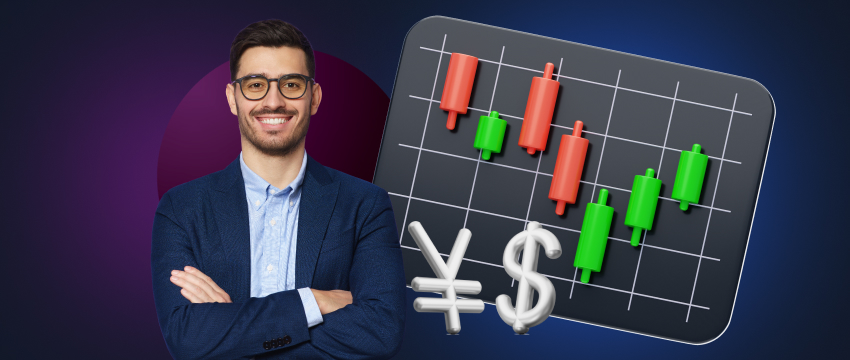
Risks involved when trading news events
Unpredictable market movements:
Event or news trading can be highly volatile. This is because it’s a speculative activity. Also, emotions can stir in response to unexpected news or events in this form of investing.
Timing:
Timing is a really important part of events trading because it can have a big effect on market movements. Some news releases happen at scheduled times, but others happen unexpectedly, which can be a bit of a shock to the system.
So, it’s really important to stay alert and on your toes. If you can do that, you’ll be in a great position to react as quickly as possible when news breaks.
Market noise:
As an event trader, you’ll be dealing with a lot of information every day. Event traders are always keeping an eye on news channels and economic calendars.
But, and this is really important, if they don’t keep track of what’s going on, they might miss something important.
So, it’s really important to learn to filter through what’s relevant and what’s not. This helps them to make the best possible trading decisions.
Feeling greedy? Controlling emotion and algorithmic trading
Now, we all know trading can be a rollercoaster of emotions, especially when you’re going for that fast-paced strategy.
Feelings like greed or impulsiveness can sometimes get in the way of rational decision-making, which can lead to unfortunate trading outcomes.
So, it’s really important to learn how to understand and manage your emotions. One really smart option is to use automated (or algorithmic) trading.
Why every event trader should trade the news
There are so many reasons why forex traders choose to trade the news. For some, it can be a really valuable addition to their existing strategy.
For example, if you’re someone who focuses on long-term trends or prefers long-term investments, you might want to trade the news every now and then. This is because it can be a great way to make a profit from short-term market fluctuations.
Secondly, trading the news or events trading can be a great way to potentially maximise profits on rapid price movements.
This is possible if they can correctly predict how the market will react to a particular event or news item.
But, as always, it’s important to remember that event investing can carry a significant level of risk. Price movements can happen without warning, which can unfortunately lead to losses.
It’s also really important to be quick off the mark when it comes to reacting to news announcements. If you don’t place the necessary transactions in time, you might miss out on a profitable trade or lose your money on a position.
Demo account
So, it’s a good idea to start with a demo trading account. This is a great way to learn how to become an event trader. It offers a virtual trading environment that allows you to practise trading without risking any money.
This is especially important when trading the news because market reactions to news events can be highly unpredictable and result in adverse trading outcomes if not monitored.
With a demo account, you can experiment, make mistakes and learn from them without losing any of your own money.
What’s more, demo trading accounts usually provide real-time market data and news feeds, so you can get investment experience in conditions that closely resemble a real trading environment.
You can also test out different forex strategies using virtual funds and then see how you get on. This is a great way to figure out what you’re good at and where you could use a little more practice. It’ll also help you gain the confidence and expertise you need to be a better trader!
After all, a demo account is a great educational Fresource, allowing you to learn how to trade the news as and when you can, time permitting.
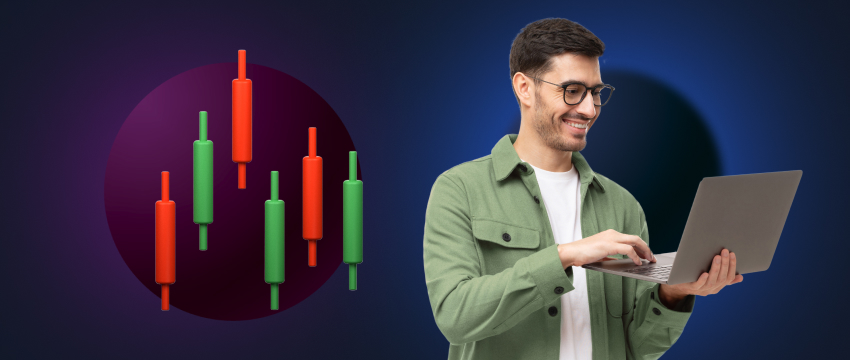
T4Trade: Learn, trade, and grow with a broker that’s got your back
If you’re a forex trader, you’ll know how important it is to have a flexible trading experience, fast withdrawals and deposits, flexible leverage, and quick execution.
And that’s exactly what T4Trade offers! If you do have any questions at all, our friendly support team is here for you 24/5 via email, telephone or live chat.
Also for those who like to get ahead by learning from others, T4Trade has got you covered with exclusive resources to help you level up your skills and become a pro at trading.
This includes an economic calendar to keep track of current and future financial activities and indicators, Live TV with daily analysis and live discussions, and loads of free webinars packed with useful trading tips and insights.
And if you’re ever stuck, our extensive variety of blogs are here to help you find the answers to all your questions.
You can access all of these via T4Trade Education, which is available to all traders online.
Disclaimer: This material is for general informational and educational purposes only and should not be considered investment advice or an investment recommendation. T4Trade is not responsible for any data provided by third parties referenced or hyperlinked in this communication.
